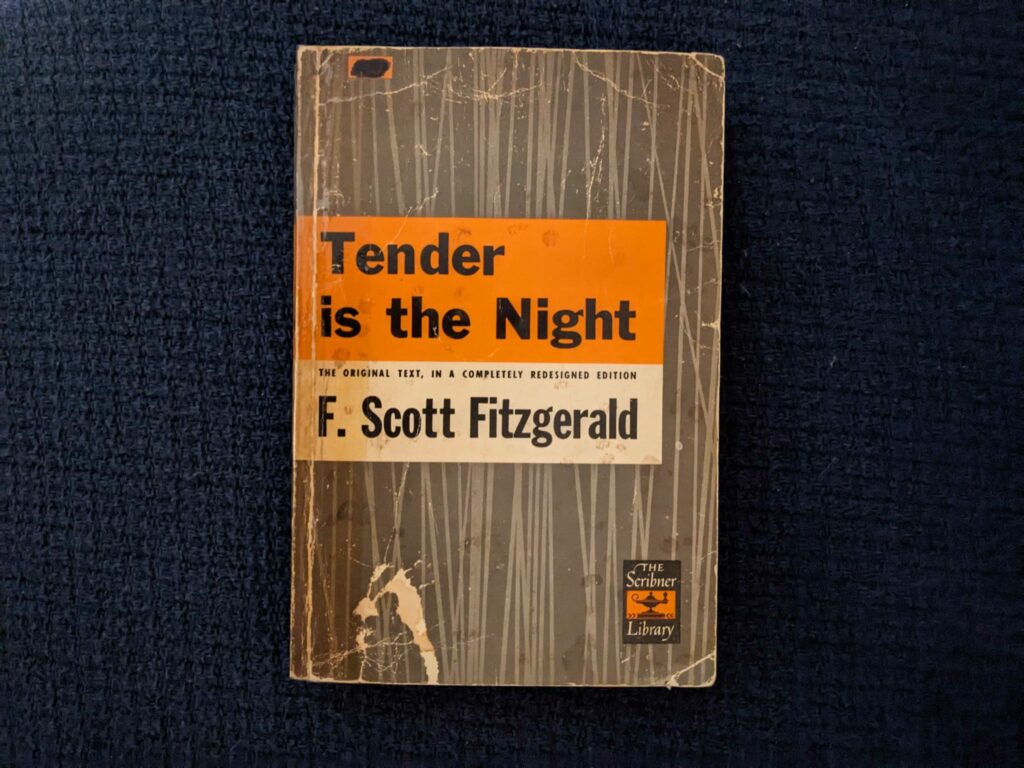Too Enjoyable to Be Literature

Photograph by Jane Breakell.
I knew nothing about F. Scott Fitzgerald when I stumbled on Tender Is the Night in 1962. I didn’t know he’d struggled with the book for almost nine years, and that during his lifetime it never settled into a finished version. I was a naive and ignorant twenty-year-old, studying English and French literature at the University of Melbourne, an unawakened literary snob who had hardly read anything twentieth-century American in her life, and was weighed down by the mighty eighteenth- and nineteenth-century British and European novels and poetry that we were to study for final examinations. I pulled the Fitzgerald off a shelf in the bookshop where I had a summer job. It was so delicious and joyful to read, I could canter through it with such bright and sudden pleasure, that it felt almost criminal. Secretly I knew it was way too enjoyable to be literature.
Two years later, practicing for final exams, we were given a page of prose to translate from English into French. I was a lazy student, barely keeping up, and I dreaded these exercises. I turned over the sheet of paper and was staggered to see that the passage was from Tender Is the Night.
On the shore of the French Riviera, about half way between Marseilles and the Italian border, stood a large, proud, rose-coloured hotel. Deferential palms cooled its flushed façade, and before it stretched a short dazzling beach. Now it has become a summer resort of notable and fashionable people; in 1925 it was almost deserted after its English clientele went north in April; only the cupolas of a dozen old villas rotted like water-lilies among the massed pines between Gausse’s Hôtel des Étrangers and Cannes, five miles away. The hotel and its bright tan prayer rug of a beach were one. In the early morning the distant image of Cannes, the pink and cream of old fortifications, the purple Alp that bounded Italy, were cast across the water and lay quavering in the ripples and rings sent up by sea-plants through the clear shallows.
Deferential palms cooled its flushed façade? The bright tan prayer rug of the beach? I looked up at the lecturer, a scornful Frenchwoman in her forties. A sardonic smile crossed her face. I put down my pen and lowered my forehead to the desk. Did she think I was regretting all the classes I’d missed, the afternoons I’d spent down in the city watching Westerns and Bergman movies, or drinking and shouting in the beer garden with the architecture students? She was right: I hadn’t a clue how to translate these images—but faced with the impossible task, I was struck dumb for the first time by their depth and richness. She couldn’t have known what a gift she’d handed me. My boxed-in ideas of whose writing could be taken seriously had just been blown sky-high. She probably thought I was panicking, about to cry, but I was taking off my hat and bowing low. I was humbled, freed, and giddy with jubilation.
Helen Garner is an Australian novelist and nonfiction writer whose books include Monkey Grip, The Children’s Bach, and The Spare Room. Her Art of Fiction interview appeared in the Fall 2022 issue of The Paris Review.
